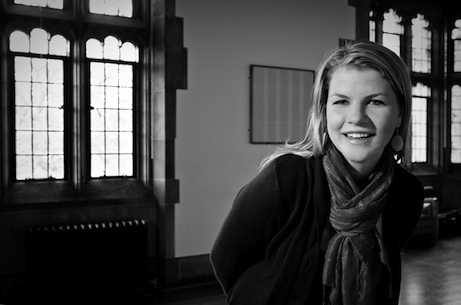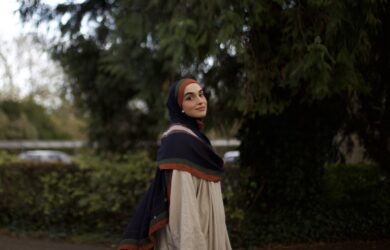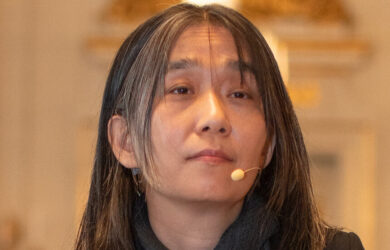
Scholar Elect Katherine Bruce-Lockhart will be researching the experience of Mau Mau women during British colonial rule.
Despite worldwide publicity about the treatment of the Mau Mau by the British following the recent high court compensation case, women’s involvement in the rebellion against the colonial government is poorly understood, says Gates Scholar Elect Katherine Bruce-Lockhart.
Her research, which will draw on oral history, aims to shed more light on the way women were treated the British in Kenya.
“Even though a lot is known about the Mau Mau and the recent court case has affirmed the massive human rights abuses that took place against them, women’s part in the story is very poorly understood. There is not much analysis and lots of ground for new discovery,” she says.
“The British perceived Mau Mau women as threatening. They often put women in prison who had only shown an interest in the Mau Mau or were forced to join them. Due to their stereotypes they put them through rehabilitation programmes to make them better housewives and mothers. They labelled women who did not respond to the rehabilitation as insane. They didn’t understand why a normal woman might be interested in politics and violence. The British didn’t think women would be violent before and this shaped how they treated the women and the women’s lives.”
History
Katherine’s interest in history was fostered from an early age. Born in Victoria in British Columbia, she grew up surrounded by history books and in an environment which encouraged intellectual curiosity. Her Scottish-born father was an English teacher and later headmaster of the local secondary school and her mother was a history teacher. “My mum made me see history as dynamic and see the debates in history as having contemporary relevance,” she says.
Katherine went to the secondary school her parents taught at. She says having her parents as her teachers was ‘a bonus’ and that school was always a very positive place for her.
Her main passion at the time was soccer and she reached a high level in the sport. She played midfield and defence for British Columbia. “Soccer was a huge part of my life. I played seven days a week and travelled at weekends,” she says. She even came to the UK when she was still at school and did some training with the Chelsea women’s programme.
However, on her first day on the university team she tore her femur and needed major knee surgery.
At school she also took part in competitive debating and won an international competition in England speaking about women’s involvement in peace-building in post-war Rwanda, a subject she had written on for her international baccalaureate. She was drawn to Rwanda after reading a book by the Canadian head of the UN mission there. Africa made a big impact on her as a young student. After being inspired by a school talk by Craig Kielburger, a Canadian activist and founder of the Free the Children programme, she went to Kenya for a month at the age of 16 to take part in a summer programme in the Masai Mara region. She helped to build a school, did some leadership training and taught some classes. The experience shaped her future career.
When she started at the University of Toronto, she knew she was interested in studying the history and politics of Africa. By her second year she was majoring in African Studies, but studied in an interdisciplinary way.
Her interests were wider than just one region, however. One of her soccer coaches was an executive director of a charity which focused on literacy in indigenous languages. They had a project in Nepal so one summer she went there to study education issues and access to education materials in indigenous languages. She was also involved in a research group that studied the G8 and attended a G8 summit in 2011 to learn about how civil society could lobby the G8.
Later in her undergraduate degree she went to Namibia on a global health internship and studied women’s access to HIV medication with the Namibian Women’s Health Network. The experience made her realise how important an interdisciplinary approach to HIV was. “It’s not just about science. It is very much rooted in social, political and economic issues,” she says. It also opened her eyes to how gender can be a big determinant in access to education and health.
“I spoke to lots of women who had been sexually abused in Namibia. Some of them had been sterilised without their consent or knowledge,” she says. She spent three months there in her last summer before she started her masters in African Studies at Oxford University.
Oxbridge
She chose Oxford because she knew she wanted to work on the Mau Mau and because she wanted to work with Professor David Anderson who had worked on the Mau Mau’s court case against the British government.
Katherine says history is vital to understanding current-day issues in Africa. “The Mau Mau uprising and how it was dealt with represented the pinnacle of colonial Africa. It was about the construction of difference between Africans and the West and how the Mau Mau were constructed through propaganda as barely human, as savages. I want to understand about the construction of difference and this was an extreme case,” she says.
The court case, which was going on while she was at Oxford, made it all the more relevant and contemporary. For her masters she did a month’s fieldwork in Kenya. Her masters thesis was on the detention of Mau Mau women, looking at one camp in particular and gathering oral history from women about their experiences.
Katherine says her PhD will broaden this research, using oral history to capture the experiences of women, many of whom are now very elderly. Two Mau Mau women gave evidence during the recent court case about the sexual abuse they endured in prison. Katherine says the evidence was “a very legalistic cataloguing of abuse”. “I want to show a more nuanced perspective with more narrative about how women in detention felt about what happened to them,” she says.












